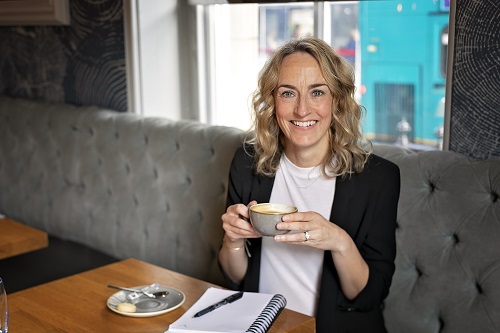
One of the first exercises you do as part of formal mindfulness training is the raisin exercise. This is where you bring all five senses to the experience of eating a raisin, noticing the effect it has on your body. This is commonly described as ‘mindful eating,’ but this is just one aspect of ‘mindful cooking,’ explains Adamantia Velonis, Founder, Marmalade + Kindness.
What Is ‘Mindful Cooking’?
Mindfulness is an approach that you can apply to many daily activities to cultivate an awareness of the here and now. Cooking is a deeply immersive experience, as you recruit all your senses during the process. Think about the sound of bacon frying or the texture of prickly cucumbers. When you pay attention to what you are doing, and the recipe you’re following, you can get into a ‘flow’ state, very quickly.
Mindful cooking takes the daily routine of preparing meals, and uses it as an opportunity to extend the benefits of formal mindfulness (or meditation) to your everyday life. The concept is wholistic in that mindful cooking is not just about mindful eating, but also includes being mindful about the produce you buy, how you are preparing it, sharing it and ultimately the impact on your body and the planet.
Mindful cooking takes into account the seasons, how your body feels, who else you are cooking for, their needs, what you already have, and the intention you bring to preparing a meal.
What Are The Benefits?
Often we think of cooking as a chore, rather than as an activity to alleviate stress. But when we treat cooking like an informal mindfulness practice, it allows us to experience a number of benefits.
As eating is something we all do, cooking is an immediately accessible way to bring your whole self to a task, focusing on being in the moment. By distracting you from unproductive thoughts and providing feelings of control or mastery, cooking can support stress management.
‘Cooking now feels like an extension of my normal meditation routine. I can lose myself in the process. Standing still at the stove, preparing food, grounds me. I become rooted in the moment, and stop worrying,’ says Rachel Kelly, author of The Happy Kitchen.
Managing Emotions
Mindful cooking can also be useful to manage strong emotions, as the senses (like smell), are deeply connected to our involuntary memory (sometimes called the ‘Proustian effect’). This is why making a meal that you associate with love or safety, can help you access those emotions in your present environment.
Cooking also allows us to experience creativity in our everyday lives, from experimenting with flavour combinations, being resourceful with available ingredients, to paying attention to the presentation of food.
We can build confidence through the attainment of new skills, the willingness to experiment with new projects, and create connection through sharing what we have made with others.
Three Quick Ways To Incorporate Mindful Cooking Into Your Daily Routine
Here are 3 quick ways to help you incorporate mindful cooking into your daily routine:
Set An Intention
Before you start cooking, be aware of your energy and mood and then take a few moments to set an intention for the cook. You may think about who you are cooking for, how you want to feel after you have made the meal or simply appreciate the produce you are using.
Awaken The Senses
To be in the moment, we need to build awareness of our feelings and be curious about them. After a busy day, mindful cooking allows us to use all of our senses and to check in on our breath.
While prepping the ingredients, notice where you are holding tension in your body. How is the quality of your breath? Is it fast and shallow or long and deep? Check in with your inner narrative. How are you talking to yourself? Is it with love or a critical inner voice?
While mindful cooking grounds us, it is also a lens through which we can observe our reactions to everyday events.
Keep A Journal
This can be part of your regular journaling practice, but try and include observations about your cooking experience. Start by thinking about the seasons, foods you have enjoyed eating and their impact on your mood or digestion.
If strong memories have been awakened during the cooking or eating process, note them down. Similarly, take note of the positives – the joy you share with those enjoying your food, the skills you have mastered, or the conversations and laughter across the kitchen table.
Live Fully
These easy actions can help manage our energy through the day, and focus us on the present moment. As Jon Kabat-Zinn says in his mindfulness classic, Full Catastrophe Living, ‘the important point to keep in mind is that each moment that you are alive is a moment that you can live fully, a moment not to be missed. Why not live life as if it really mattered?’ Mindful cooking helps us make every moment count.
Bio
Adamantia Velonis is the founder of online cooking journal Marmalade & Kindness. Her mission is to encourage people to find moments of mindfulness and creativity through cooking.








